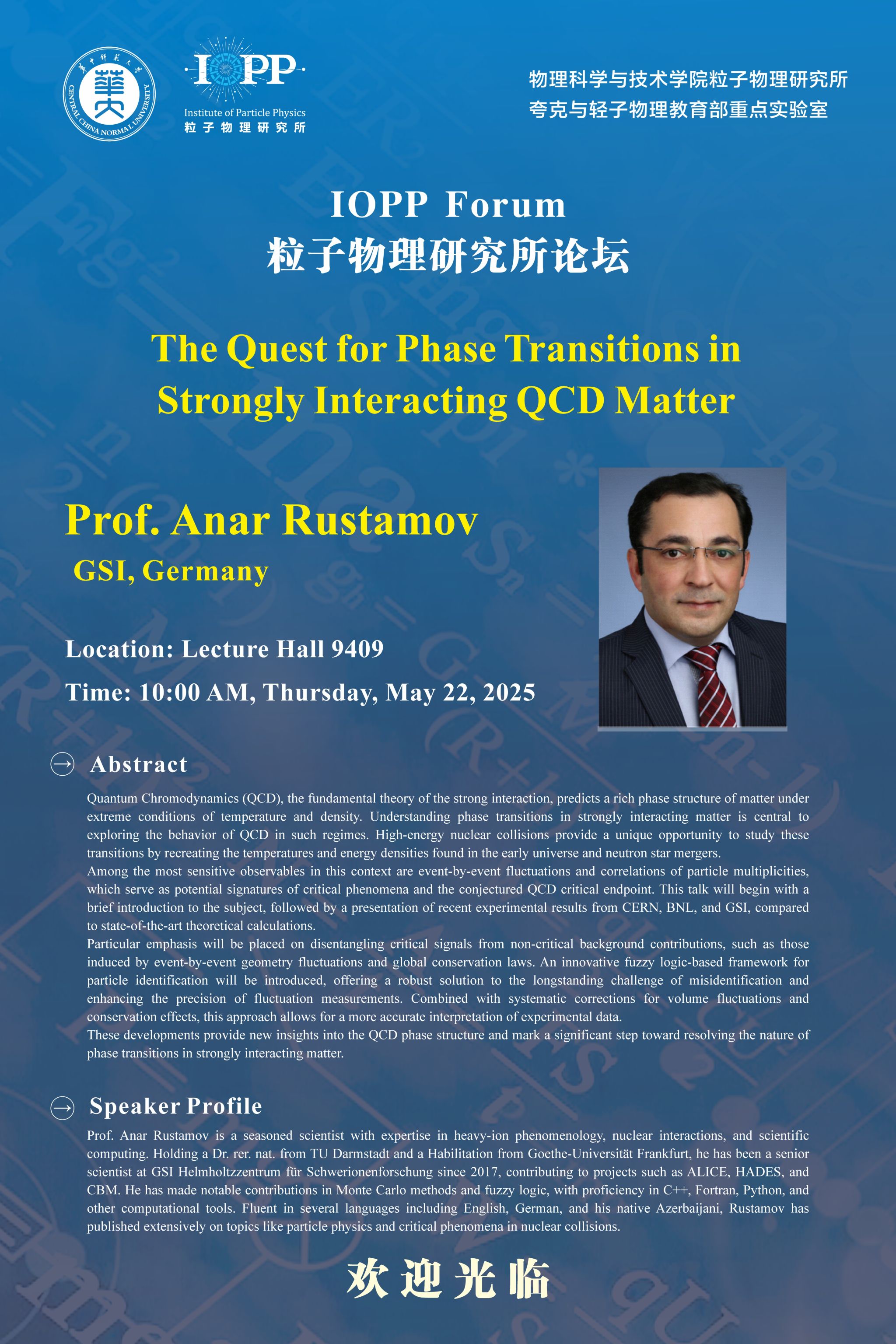Speaker: Prof. Anar Rustamov GSI.Germany
Location: Lecture Hall 9409
Time: 10:00 AM, Thursday, May 22,2025
Abstract
Quantum Chromodynamics (OCD), the fundamental theory of the strong interaction; predicts a rich phase structure of matter under extreme conditions of temperature and density. Understanding phase transitions in strongly interacting matter is central to exploring the behavior of QCD in such regimes. High-energy nuclear collisions provide a unique opportunity to study these transitions by recreating the temperatures and erergy desities found in the early universe and neutron star mergers.
Among the most sensitive observables in this context are event-by-event fluctuations and correlations of particle multiplicities, which serve as potential signatures of critical phenomena and the coniectured QCD critical endpoint. This talk will begin with a brief introduction to the subject, followed by a presentation of recent experimental results from CERN, BNL, and GSl, compared to state-of-the-art theoretical calculations.
Particular emphasis will be placed on disentangling critical signals from non-critical background contributions, such as those induced by event-by-event geometry fluctuations and global conservation laws. An innovative fuzzy logic-based ftamework for particle identification will be introduced, ofering a robust solution to the longstanding challenge of misidentification and enhancing the precision of fluctuation measurements. Combined with systematic corrections for volume fluctuations and cconservation effects, this approach allows for a more accurate interpretation of experimental data.
These developments provide new insights into the QCD phase structure and mark a significant step toward resolving the nature of phase transitions in strongly interacting matter.
Speaker Profile
Prof. Anar Rustamov is a seasoned scientist with expertise in heavy-ion phenomenology, nuclear interactions, and scientific computing. Holding a Dr. rer, nat. from TU Darmstadt and a Habilitation from Goethe-Universitat Frankfurt, he has been a senior scientist at GSl Helmholtzzentrum fur Schwerionenforschung since 2017, contributing to projects such as ALICE, HADES, and CBM. He has made notable contributions in Monte Carlo methods and fuzzy logic, with proficiency in C++, Fortran, Python. and other computational tools. Fluent in several languages including English, German, and his native Azerbaijani, Rustamov has published extensively on topics like particle physics and critical phenomena in nuclear collisions.
